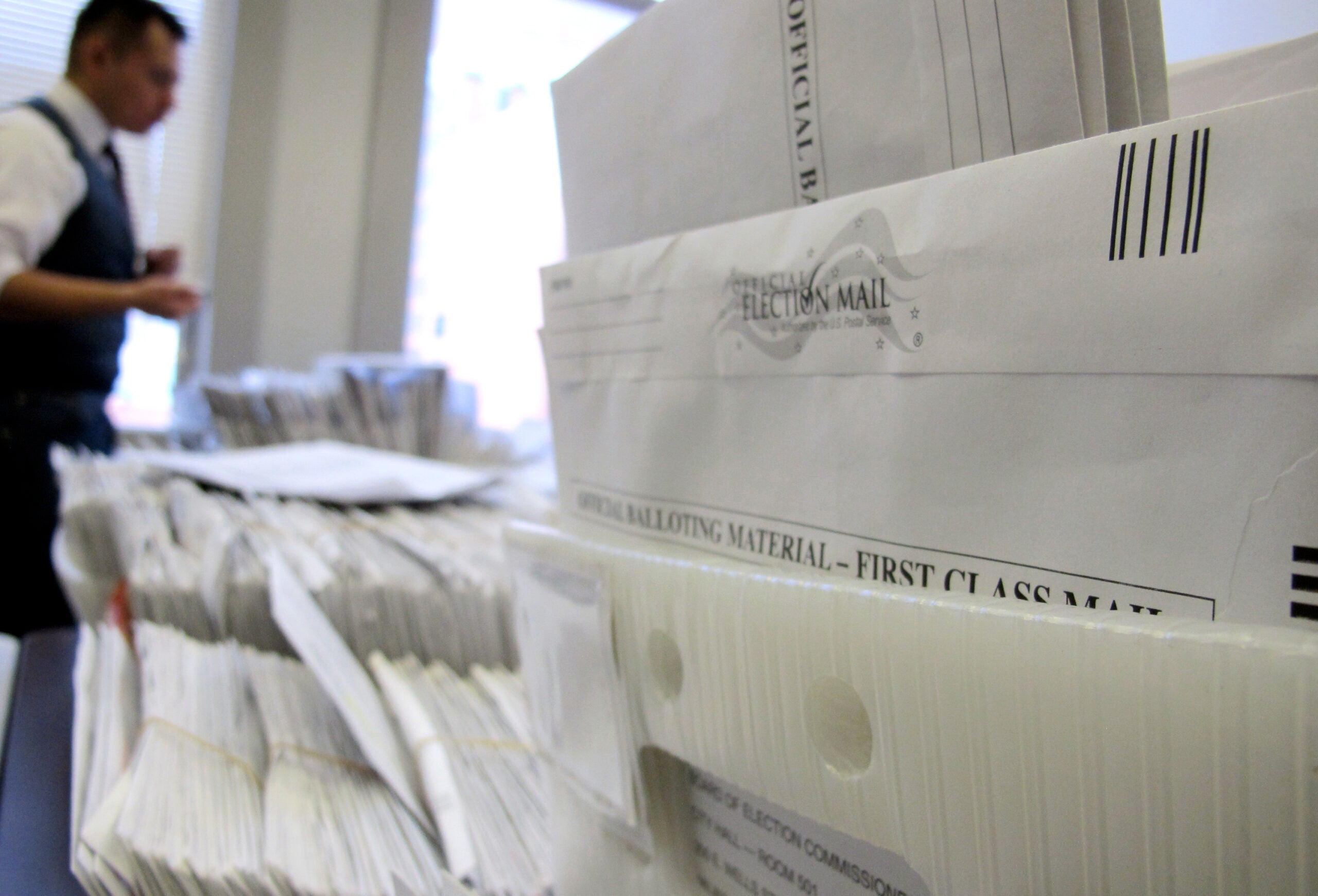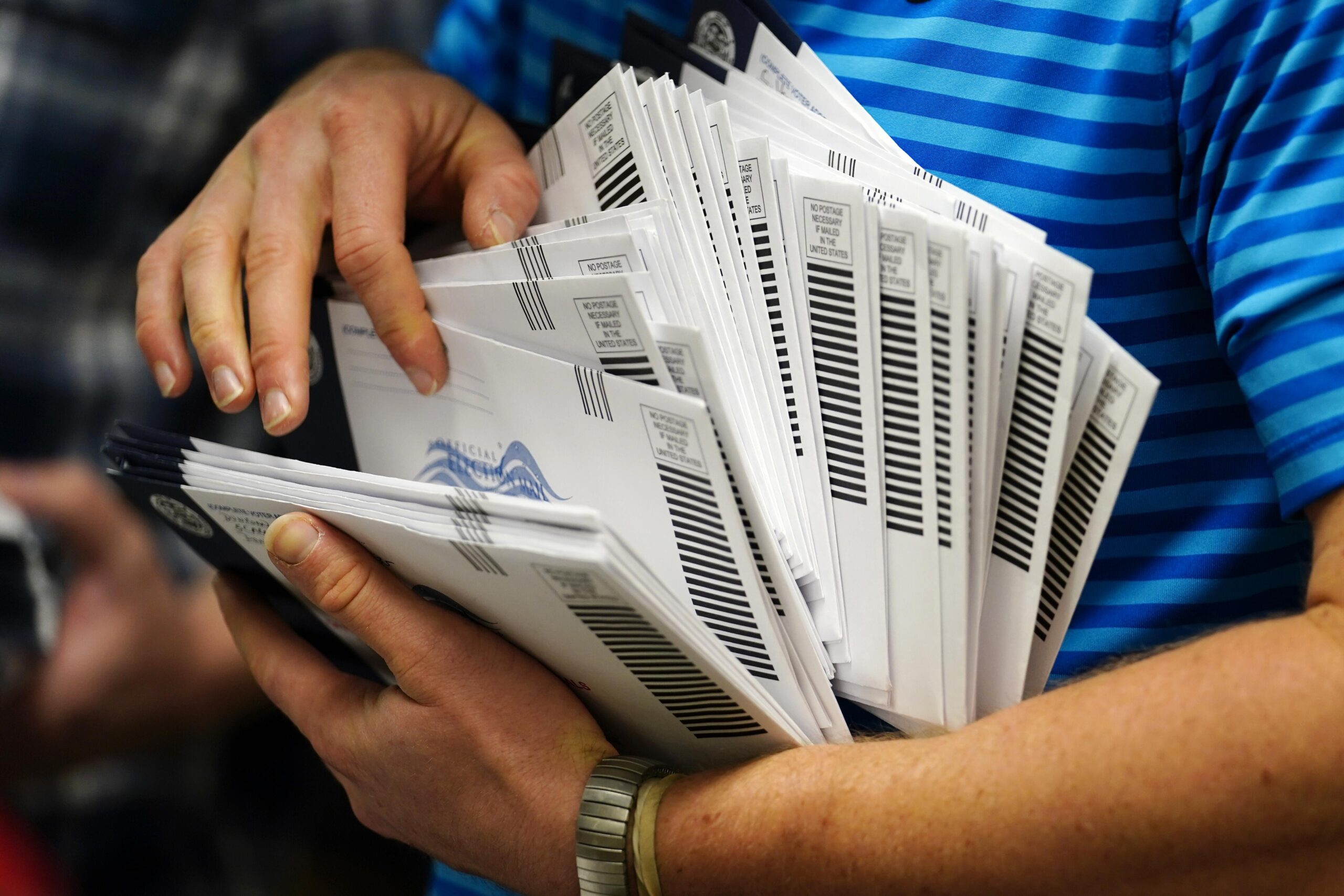The Wisconsin Elections Commission unanimously voted to scrap its idea to send out two different absentee ballots for elections in April.
Now, absentee voters will only get one ballot for the presidential primary and local and state elections Tuesday, April 7.
A previously unenforced state law requires presidential primary absentee ballots to be sent out 47 days before the primary, which would be Thursday, Feb. 20. That’s just two days after Wisconsin’s state and local primaries, which isn’t enough time to certify the results and figure out who should end up on the final ballot, according to a commission memo.
News with a little more humanity
WPR’s “Wisconsin Today” newsletter keeps you connected to the state you love without feeling overwhelmed. No paywall. No agenda. No corporate filter.
So the commission previously decided to split up the ballot. An estimated 81,000 absentee voters would have received two separate ballots: one listing presidential primary candidates, and later, another containing all candidates. If someone returned both ballots, only the second complete one would be counted.
Confused? That’s what commissioners like Ann Jacobs were afraid of. At a meeting Wednesday night, she called the two-ballot idea “insanity.”
“We are creating a system where we’re telling ’em, ‘Don’t worry, your vote won’t be counted twice,’ but we also know that we prosecute people for voting twice,” she said.
The commission decided to push back any enforcement of the law until after 2020.
Commission Chair Dean Knudson said he’s concerned about the clerks who could be punished for going against state law.
“It isn’t the Elections Commission that would be breaking the law. It will be the clerks who choose not to do this, but essentially, we’re giving our stamp of approval on that,” Knudson said.
When asked if the move was legal, commission administrator Meagan Wolfe said it’s in keeping with what the commission did before.
Military and overseas voters will still get two separate ballots based on the 47-day deadline, but that is not unusual, since they need more time to get their ballot and send it back, Wolfe said.
Wisconsin Public Radio, © Copyright 2026, Board of Regents of the University of Wisconsin System and Wisconsin Educational Communications Board.





